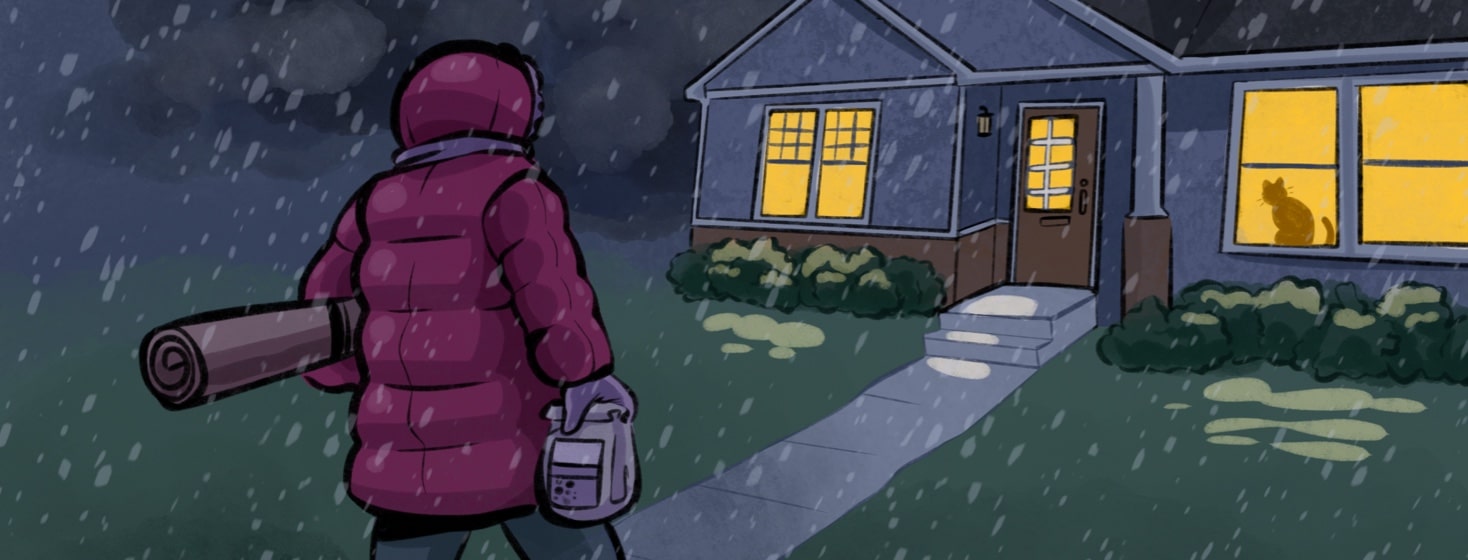Cold To The Bone: Surviving Winter with Psoriatic Arthritis
According to a 2018 survey conducted by the National Psoriasis Foundation, 4 out of 10 people claim that winter is the season that affects their PsA the most.1
Winter can be tough for those with psoriatic arthritis
“Weather does, in fact, impact the severity of flare-ups associated with psoriatic arthritis,” says Anand A. Kumthekar, M.D., a rheumatologist at Montefiore Medical Center and assistant professor at the Albert Einstein College of Medicine in New York City.2
While no scientific proof exists to explain why cold weather intensifies symptoms, many PsA patients report winter flares. “About 90 percent of my patients say their psoriatic arthritis gets worse in wintertime,” says Dr. Kumthekar.2
And while winter can be painful, it doesn’t have to be impossible. Here are some tips to keep you moving this winter.
Featured Forum
View all responsesWarm showers and hot baths can help ease your joints
Taking a warm shower or bath can help ease pressure on aching joints, reduce inflammation, and ease swelling. A warm bath especially helps ease symptoms of many musculoskeletal conditions, including arthritis and lower back pain.
Toss some scented Epsom salts or a few drops of oils to make it more enjoyable.
Your warmth matters
It is especially important to protect the joints that are bothering you. If your hands hurt, don’t leave the house in the cold without wearing gloves. If your knees are aching, throw on an extra layer of clothes if you can.
Thermal or insulated gloves and clothing have always been helpful for me. You can even purchase heated gloves that are cordless and rechargeable.
A body moving is a warm one!
Continue to exercise regularly throughout the winter months. Exercising can help keep your joints loose and warm. I know it’s tempting to stay curled up under a warm blanket, watch true crime shows, and stuff your face with junk food. Maintaining some level of physical activity — even if it’s less than what you do in warmer months — can help.
“The less you use the joints, the stiffer you’re going to get, so it’s always good to be active,” says Dr. Kumthekar.2 If a heavy workout is too tough, try some light yoga or even just some stretching.
Get Your Beauty Rest
A lack of sleep can worsen chronic pain and other symptoms for people with PsA. The following tips can help you create good sleep habits:
- Follow a regular sleep schedule.
- Make sure your room is dark, quiet, and temperature-regulated.
- Avoid caffeine and alcohol before bedtime.
- Stay off your phone and shut your TV before bed.
Pay attention to the temperature and weather patterns!
Barometric (or atmospheric) pressure is the weight in the air. A drop in this pressure, which usually happens when a storm is coming, has been linked with joint swelling and pain. “The theory is that a decrease in pressure may cause fluid in the joints to expand, increasing stiffness,” says Dr. Kumthekar.2
This doesn’t mean you must pack up and move to Florida after a snowstorm. Ice packs and NSAIDs like naproxen or ibuprofen during stormy weather can help reduce acute swelling. So, keep some handy and leave your luggage in the closet.
This or That
Do you also find it painful to sit for extended periods of time?

Join the conversation